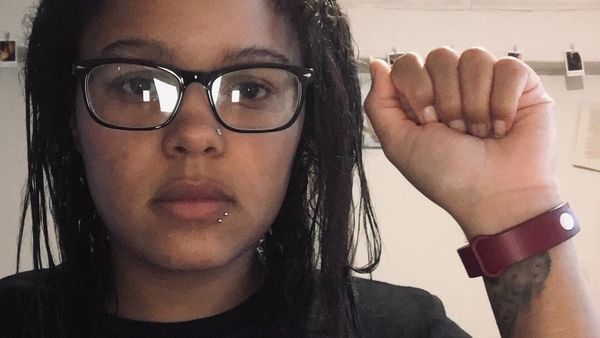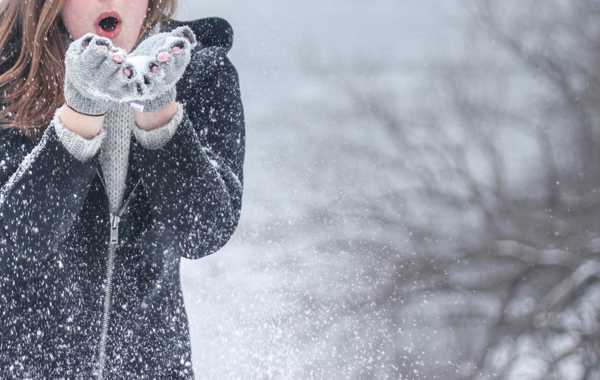San Francisco Forty Niners’ quarterback Colin Kaepernick recently created somewhat of a national media circus with his announced decision to sit during the national anthem while it is played during NFL games. Predictably, the right wing immediately called Kaepernick unpatriotic, disrespectful, and in some cases, all manner of racial epithets for his perceived slights against our nation. I even noticed a particularly irritated commenter ask if we could, “just ship him off to ISIS”. Implicitly, their comments claimed that Kaepernick’s protest, rather than what he was protesting against, was the real issue of the day. This gets at the very heart of the issue at hand: Kaepernick is protesting a very real, tangible injustice, one that affects not only the black community but also all communities of color in the United States and indeed white people as well. No community is completely immune to the injustices that are now being recognized after being taken as “just the way things are” for so long. But in the minds of Kaepernick’s detractors, that issue can be only briefly considered (or indeed ignored entirely) in their tunnel vision focus.
Whatever your personal reservations about the method in which Kaepernick chose to protest, the fact remains that being more angered by his protest of an injustice than by the injustice itself makes you part of the problem. Tired excuses about the protest not being appropriate or timely have been used since the beginning of the civil rights movement to avoid having to take responsibility for affecting positive change. Simply put, these excuses do not do anything to actually correct the prejudice, poverty, and violence that many communities of color still face.
One of the many charges that have been leveled at Kaepernick in recent days is that he personally, is not oppressed due to his massive salary and generally secure existence. These comments betray not only the commenter’s ignorance of the fact that people of color continue to face prejudice and racism all the way up the economic ladder but also the disregard for the reality that Kaepernick is trying to address with his protest. It does not matter if Kaepernick himself is not oppressed when he speaks out against oppression; citizens do not lose their right to speak out against injustices if those injustices do not directly affect them. Did the whites who marched with Dr. Martin Luther King Jr. like James Reeb at Selma and on the National Mall not have the right to stand with and support his message? Did the white journalists such as Donald Woods who stood with Steve Biko and Nelson Mandela in the fight against Apartheid not deserve to speak because they had benefited from its power structure? Or is it only people of color who, once they find themselves “free” from oppression, lose their right to speak out?
The central issue here should not be that Kaepernick chose an “unideal” form of protest in the eyes of those who sanctimoniously deem his grievances unworthy of their consideration. The central issue at hand is that he has been speaking out about these issues, as have countless others, for years now and the situation for communities of color in the United States has not been improved because people like those that are up in arms about Kaepernick’s protest refuse to acknowledge that the problems he is speaking out against concern them as much as do his actions.
This speaks to a larger problem of protest in American political discourse. Protesters find that, more often than not, their protests are not taken seriously due to a combination of two key factors. First and foremost, the reaction of many people to protest is that the injustice the protesters are highlighting is not an actual injustice. Then, when this justification fails (and in this case it most certainly does -- see list of links at bottom -- some of which are included in this piece), they resort to criticizing the protest as rude, unpatriotic, or violent (even in cases where there is little to no evidence of any violence by the protesters or promotion of violence among a movements leaders.
There are a number of problems with this line of attack on protest. Primarily, these slights against protesters miss the fact that it is not the job of those fighting injustice to do so in the most pleasant, polite way possible. Not only does this method of protest fail to achieve the desired outcome nearly 100 percent of the time, but it also fails to be perceived as the most pleasant, polite way possible. No matter how perfect the protesters may act, those who disagree with them will always seek to identify them with the few bad eggs that might arise in the movement (and to which no movement is immune). Protests should not have to be perfect in order to achieve the desired ends.
This is also evident in the broader scope of racial injustice in the United States; the onus should not be on communities of color to be perfect in order to have the same opportunities as white Americans. People often claim that if communities of color “would just try harder” then they wouldn’t have as many problems, poverty, crime, etc. These arguments again miss the point. A very large body of evidence suggests that the single largest driving factor of crime in minority neighborhoods is that these communities face disproportionately high levels of poverty as well as concentration of poverty. When controlling for environmental factors and socioeconomic status, these disparities almost entirely disappear. And moreover, communities of color, and specifically the black community, face far greater issues relating to the criminal justice system, making the affect of crime all the more detrimental.
Therefore communities of color are disadvantaged from the outset, and it should not be left entirely to them to improve their standing in life. It is the responsibility of those lucky enough to find ourselves with more opportunities, to make sure that those communities who are not as fortunate are able to reach those opportunities as well. Not everyone has the wherewithal, both in terms of skill and material resources, to pull themselves up by their bootstraps. And in a modern society, while those qualities should be rewarded, they should not be a prerequisite for a healthy standard of living.
This is what protest seeks to achieve. No one sets out to convince only those which we are already in agreement. Yet if those who have the ability to create change are constantly opposed to the protest which highlights the need for change then nothing will be done. The vitriolic refusal to even consider the premise upon which Kaepernick’s silent protest against the injustices that he sees in the United States is based is emblematic of the ignorance that now dominates our political discourse.
Kaepernick’s protest is not intended to be disrespectful or profane. It is not meant to be derisory toward the flag or to the principles that it stands for. Rather, Kaepernick has shown that he so deeply respects the principles upon which this country was founded that he cannot bring himself to stand for the perversion of those concepts with which our nation has been infected. The fact that people are angrier with his protest than with what he is protesting is the whole point. Kaepernick wants to stand for the national anthem and the flag, but he cannot do so while the principles for which they stand are denied to so many.
**Links for further reading**
There are a great many long articles here so if you don’t want to read through them then the first link is a great video that covers most of the important points. However, I strongly recommend link numbers 2,4,5,12,22, and 30. They are all very much worth the read.
2. Racial bias in hiring
3. Racial bias in the job market
4. DOJ Baltimore Report (Last paragraph on 37 and text box on 38 are of particular interest)
5. The pedagogy of privilege
6. On average, black men's prison sentences are 20 percent longer than white men's for comparable crimes
7. Black people and white people use illegal drugs at similar rates, but black people are far more likely to be arrested for drug use:
8.African Americans are far more likely to be stopped and searched (although the contraband hit rate is higher among white people) in California:
9. And in New York
10. Black kids are more likely to be tried as adults and more likely to receive life sentences
11.Black former convicts get fewer employer callbacks than white former convicts:
12. College isn't a cure-all for black students
13. High schools with mostly African American and Latino students are less likely to offer courses in Algebra II or Chemistry than high schools with mostly white students:
14. Schools are still very segregated. This has a highly negative impact on students
15. People are more likely to view black kids as guilty in school
16. Old study, but relevant information on disparities in healthcare
17. Disparities in coronary heart disease treatment
18. Disparities in healthcare are well documented but not well understood
19. Info on increasing disparities in life expectancy between black and white people in the US:
20. Racial wealth disparity and the role that inheritance plays
21. The widening of the wealth gap
22. Reaching a higher quality of life does not free you from racism
23. Wrongfully Convicted African-Americans Wait Longer To Be Exonerated Than Others
24. Especially in sexual assault cases, members of minority groups are more likely to be wrongfully convicted
25. Minorities have been systematically made to pay more for auto loans
26. Persistence of discrimination in mortgage lending
27. Structural discrimination in lending practices
28. Constricting credit disproportionately affects communities of color
29. Student loan debt is higher among people of color
30. Wrongful Convictions, Wrongful Bias against minorities in the Justice system
31. The concentration of poverty poses a number of challenges





















